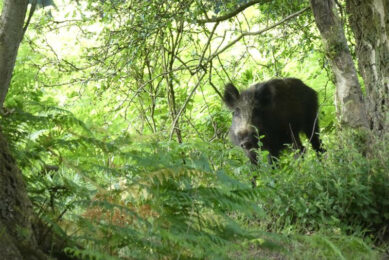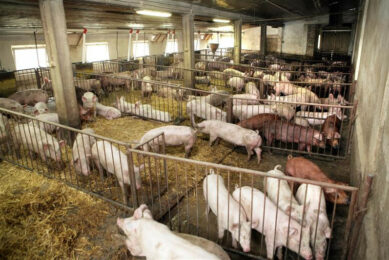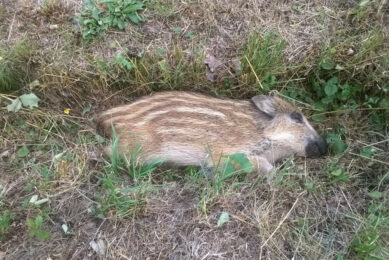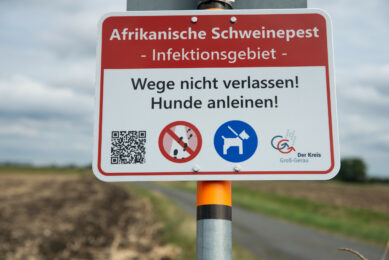Wild boar can be immunised for ASF using a vaccine
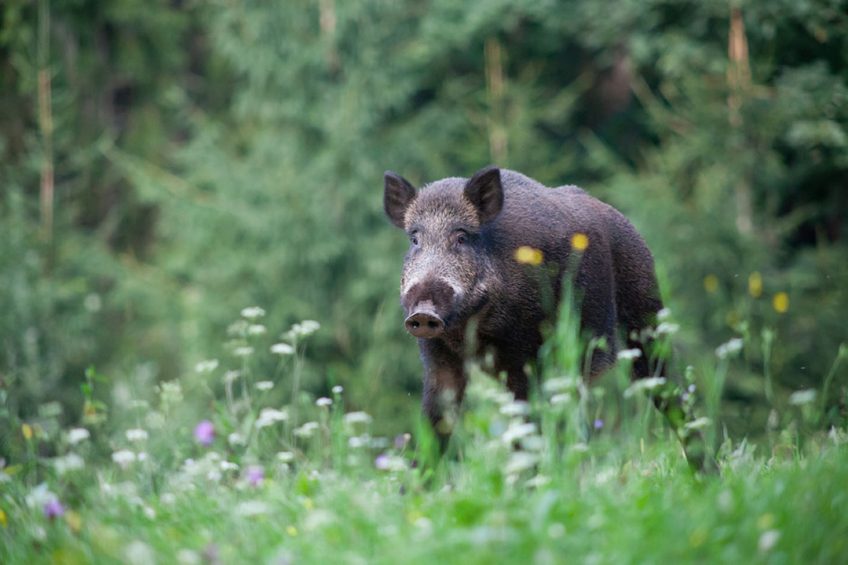
Wild boar can be immunised against African Swine Fever (ASF) by a new vaccine delivered to the animals in their food, according to new research from Spain.
Published in Frontiers in Veterinary Science, it is the 1st report of a promising inoculation against the virus. The study also provides evidence that this immunity can be passed on via contact with immunised individuals, but further studies are needed to examine exactly how this occurs, as well as the safety of repeated administration.
Dr Jose Angel Barasona, a researcher at the Spanish Visavet Health Surveillance Centre, part of the Complutense University of Madrid, Spain. Dr Barasona is also co-author of the research. He said in a press release shared by the scientific publication: “ASF is of enormous concern to the pig industry. Our study demonstrates the effectiveness of the first oral vaccine against this disease on Eurasian wild boar. Overall, we demonstrate that oral immunisation of wild boar conferred 92% protection against a highly pathogenic strain of African Swine Fever, which is currently circulating in Asia and Europe.”
High fever, loss of appetite and death
African Swine Fever affects more than 55 countries on 3 continents, including China, which contains nearly half of the world’s pig population. The virus is highly contagious and transmission can occur by the movement of infected livestock and across wild boar populations. It is this latter form of infection that Dr Barasona and his colleagues hope to prevent.
He said, “Wild boar is the most severely affected by this virus in Europe and to date, none of the control measures have been effective. The importance of vaccinating wild boar was demonstrated during the 2000’s when Classical Swine Fever affected different European countries, and an oral vaccine was used to reduce the incidence of infection in the wild populations in Germany.”

Read more about pig health in the Pig Progress health tool
The complex nature of the ASF virus, gaps in knowledge concerning infection and immunity, as well as technical difficulties, have hindered vaccine development. But in 2017, a wild boar in Latvia provided a breakthrough.
Dr Barasona said, “Serum from a wild boar hunted in Rietumpieriga, Latvia, was confirmed as ASF virus positive at the EU reference laboratory in Madrid, Spain. This was a weakly virulent strain of the disease, which enabled us to produce a live vaccine. When we inoculated wild boar in our laboratories with this live strain, they showed no symptoms of this disease but produced antibodies against the virus, ultimately giving them protection against the more dangerous form.”
Immunity can be passed on via contact
When tested, as well as proving its effectiveness against one of the most dangerous strains of ASF, it revealed an additional capability to immunise other wild boar through contact with orally vaccinated animals.
“The ‘shedding’ of this vaccine might help amplify vaccination coverage, reducing the need for expensive production and large-scale administration of vaccine in the field,” explained Dr Barasona.
In Belgium, ASF has been circulating in the wild boar population since September last year. Check the latest in the Pig Progress interactive map
This vaccine, which would be administered in bait to the wild animals, represents considerable progress in the control of ASF in the wild and, subsequently, at the domestic/wildlife interface. However, Dr Barasona cautioned more research is needed before it can be used widely.
Mitigating the uncontrolled spread of ASF
He said, “If the safety of the vaccine can be established, then it may help mitigate the uncontrolled spread of African Swine Fever across Europe and Asia, like the success so far in halting the spread of Classical Swine Fever. Future studies should examine the vaccine’s safety following repeated administration, the process of ‘shedding’, and its genetic stability during passage from one animal to another.”
The research paper was authored by Jose A. Barasona, Estefanía Cadenas-Fernández, Cristina Jurado, Belén Rivera, Antonio Rodríguez-Bertos, Marisa Arias and Jose M. Sánchez Vizcaíno, Complutense University of Madrid, Spain; and Carmina Gallardo, European Union Reference Laboratory for ASF, Centro de Investigación en Sanidad Animal (INIA-CISA), Madrid, Spain.



